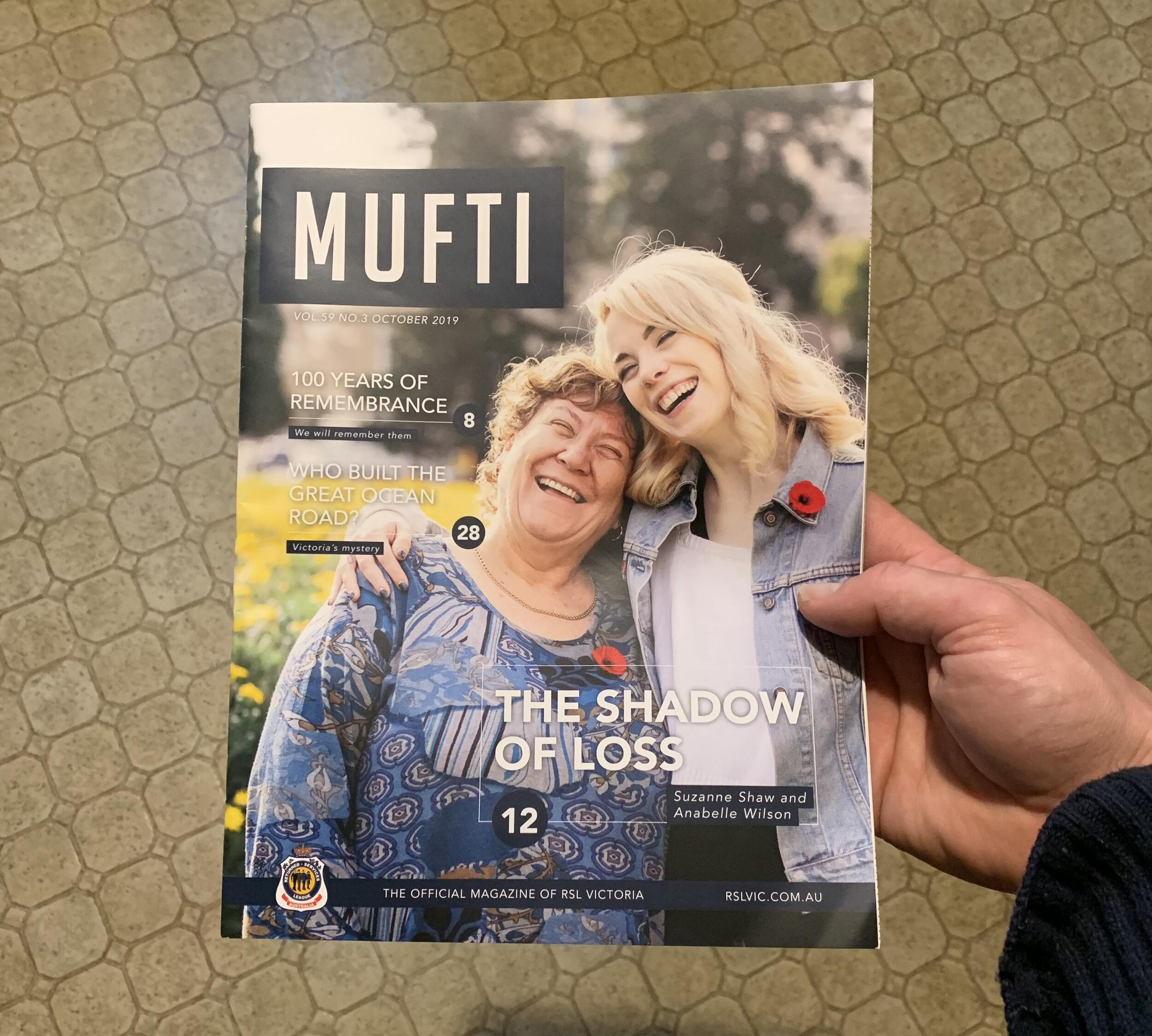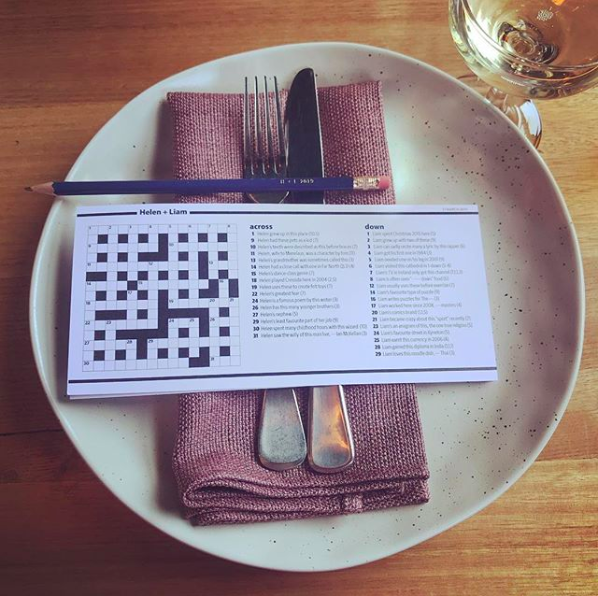2. Writing clues is easier than solving clues
True? Dunno. But it's a good mantra to adopt as a setter, particularly when you catch yourself stretching a definition just to make a clue seem more elegant. The phenomenon is especially observable when you get a chance to revisit your old puzzles once you don't remember the clues. Without fail, there will be a couple of clues that will now seem wanky or desperate with the benefit of hindsight. More on "compiler's hindsight" later.
3. Don't paint yourself into a corner
There are two upsetting scenarios an inexperienced cryptic compiler will face.
NIGHTMARE FODDER 1: You have difficulty filling the grid, and therefore are forced to include (a) very obscure word(s) that no-one will ever have heard of!
Some obscure words I tried to sneak into my early work:
PATACA: the basic monetary unit of Macao, equivalent to 100 avos
ATARAXY: a state of serene calmness
UNTERSEE: the smaller of the two lakes that together form Lake Constance
SCHWICK: I still to this day don't know what this word means.
One or two obscure words is ok now and then, but if you get in the habit, solvers will tire of it and you will be fired humiliatingly by the powers that be.
NIGHTMARE FODDER 2: You mindlessly fill the grid. Later you find that it's impossible to come up with good clues for some of the words you've selected.
Basically, before you commit to having a word in your grid, be sure you can come up with a decent clue for it. Trying to clue BIRTH CONTROL still haunts me to this day.
4. Don't have too many anagram clues
They're the easiest type of clue to compose, so don't use them unless you have to. Think of them as your get-out-of-jail-free card. If a word just cries out (icers?) for an anagram clue, then of course go for it. I'm chuffed when I only use four anagram clues in a whole puzzle, plus maybe a handful of partial anagrams. And while I'm at it...
5. Always use a nice spread of different cryptic clue species in every puzzle
As you're constructing the puzzle, keep tabs on which type of clues you've used and which you haven't. By the puzzle's completion, you should have used nearly every clueing device: containers, initialisms, charades, homophones etc etc. It depends on the level of difficulty you're going for. I'm not supposed to throw too many curveballs at the Monday audience. For that very reason I tend to avoid those diabolical "reverse hiddens". As for Spoonerisms, I still don't know how I feel about them - but I try to use them only every second week.
6. Make sure your clues and answers aren't offensive
I often write shockingly rude clues in my drafts, and afterwards dab sadly at the delete key while I rejig my moral compass. Fair enough, I work for a family paper and not Viz Magazine (NSFW).
Occasionally my editor will refuse clues because they are gory or make light of a serious subject. Recently Child gets currency in return for bodily organ (6) was rejected, and in hindsight I guess it could have been controversial. The Age letters page occasionally runs brief comments by aghast readers, lamenting a sexist or off-colour clue. My most regularly received complaints are "too hard" or "too easy"! (see Tip 10)
Generally avoid references to diseases and sex (and definitely don't combine the two!). Remember that even clues that might be 100 per cent innocent may be misread as innuendo by a sick-headed subscriber, so try to be preemptive of that.
7. Be mindful of the solvers' experience
In section two I wrote about about being fair in your clueing, but being fair goes beyond that. When putting yourself in the footwear of your solvers, you need to take a holistic view of your puzzle.
Say 2-down a really tough clue. You might, then, make sure that 1-across is easy, so that the solver has a better chance at 2-down.
Also be aware of unwitting misdirection. Model can mean T or it can be an anagram indicator. And of course, it's fine if you're deliberately trying to throw off your adversaries. But if you unknowingly add such a layer of confusion to an already-challenging clue, it can morph into a real clanger.
If you're making a theme crossword, where the theme rests on 2-down, think hard about how difficult you're going to make 2-down.
Sometimes I've written a clue which accidentally has two legitimate answers.
Snoop's vocal award (5) could be MEDAL or PRIZE. This is a bit of a fluke, really - but if I had a choice, my clues would only ever give one answer. This is why when I do homophone clues I try my best to make it very clear what the definition is.
8. Maintain an obsessively thorough list of cryptic abbreviations and ideas
Here's a brief excerpt from my abbreviations list, Chapter Y.
.....................................................
y: military base
y: chromosome
y: unknown
y: why
y: yard
y: year
y: yen
y: yttrium
.....................................................
9. Software tips
Confession time: I have never compiled a crossword using pen and paper. Perhaps that's normal for compilers who computed their way into adulthood. I do use a pen to jot down clue ideas sometimes, but other than that, my puzzles are kilobytes.
I use a program called Crossfire and it is the stuff dreams are made of in my opinion.
Basically, the program tells you what words will fit, and it also channels Deep Blue by telling you which words will give you the most options for the rest of the puzzle. It is not a substitute for creativity, and there is still grunt work involved in a good puzzle - but it sure is preferable to the abject hell of eraser residue, pencil shavings and papers cuts.
There's also a great browser-based compiling software called Go Crossword
10. Remember you can't please everyone.
...but you can try. I make my puzzles mostly easy with a few deliberately tough clues to sort the champs from the chumps. This way the chumps can feel happy that they've got most of the clues, but champs can feel satisfied that they completed the grid. Chimps, meanwhile, have yet to get a single one of my clues - no matter how clever their zoologists claim them to be.
When I'm solving other people's crosswords, the harder the better. See, I wouldn't even please myself!
-----------------
Follow me on Twitter: @LRxword
Cheers
LR













